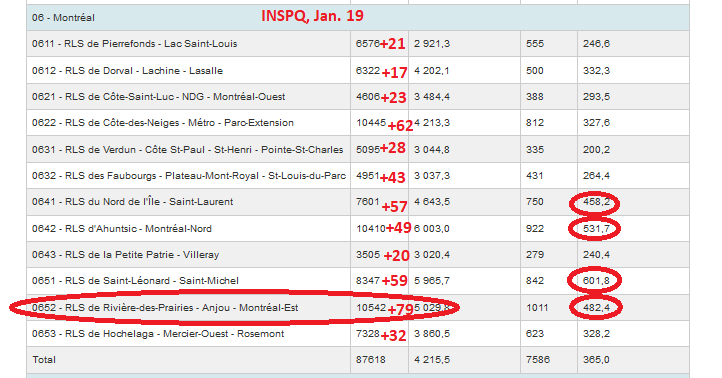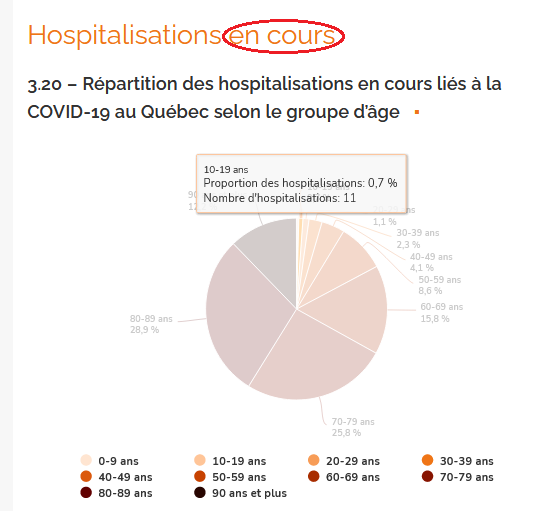
1) Hospitalizations for #COVID19 rebounded on Monday by 31 to reach 1,491 — a clear sign the second wave still poses a dire threat in the province. ICU stays inched up by two to 217. In this thread, I will try to explain a couple of seemingly conflicting trends in the #pandemic. 

2) On Jan. 8, Quebec posted a high of 3,127 #COVID19 cases. Ten days later, the province declared 1,634 infections. In fact, the number should be lower, 1,434 cases, since technically 200 belong to the tally reported on Sunday but were only disclosed Monday because of delays.
3) Is this a sign that the province’s curfew and shutting of non-essential businesses are working? A senior Montreal health official to whom I spoke attributed the decline in #COVID19 cases to a drop in testing. Authorities carried out 10,000 fewer tests over the weekend.
4) For three days in a row, the number of #COVID19 outbreaks in daycares across Quebec has been rising, reaching 62 on Monday, up by six from the day before. Clusters in the workplace have been going up and down, and on Monday they declined by six to 649.
5) Outbreaks in health care institutions have remained in the 470-range since Jan. 8. On Monday, the number crept up by one to 472. A critical #COVID19 cluster has struck the Résidences Vivendi in Île Bizard. The West Island eldercare home reported 19 cases in the past 24 hours.
6) Although the Quebec Health Ministry did not observe any increases in school outbreaks Monday, the latest figures by the Education Ministry tell another story. Schools were compelled to shutter 116 more classrooms on Friday due to #COVID19 exposure. See the chart below. 

7) Meanwhile, the number of #COVID19 cases declined for a third day in a row in Montreal. The city’s seven-day rolling average is still considered high at 36.42 infections per 100,000 residents. We’ll have to wait a few more days to see whether this is truly a trend. 

8) At the neighborhood level, Montreal’s #COVID19 hot spots are still generating scores of cases, as the chart below indicates. Neighborhoods of concern include densely populated Côte-des-Neiges and Parc-Extension as well as Saint-Léonard and Montreal North. 

9) On Saturday, an Inuit man froze to death steps away from a Montreal shelter where he’d be keeping warm, raising questions as to whether the nightly curfew contributed to his death. What we do know is the curfew is keeping Montreal emergency rooms less crowded in the evenings.
10) The bottom line is that it’s still far too early to jump to conclusions that the curfew has succeeded in reducing community transmission of the #coronavirus, and it will be a while before we know the impact of the reopening of high schools on Monday. End of thread. Stay safe. 

Addendum: In tweet # 9, I incorrectly referred to Raphael André as Inuit. In fact, he was Innu. My apologies, and thanks to those on Twitter who pointed this out to me quickly. May he rest in peace and may his death not be in vain.
• • •
Missing some Tweet in this thread? You can try to
force a refresh








